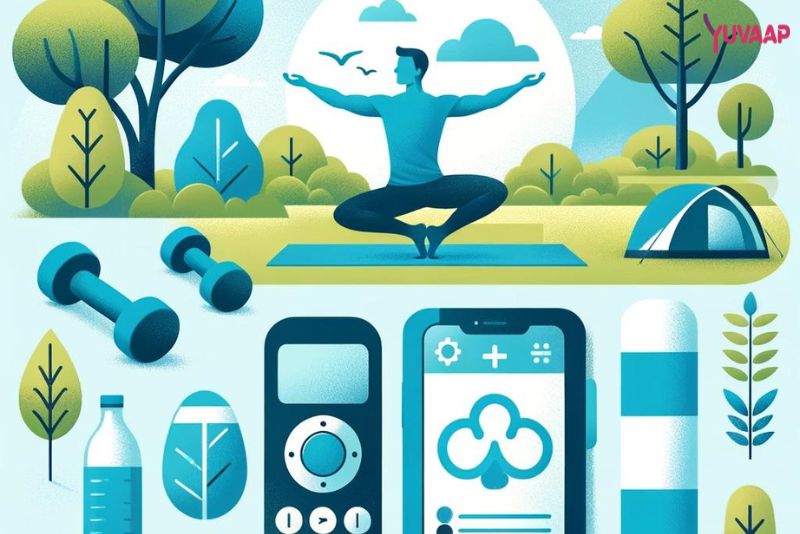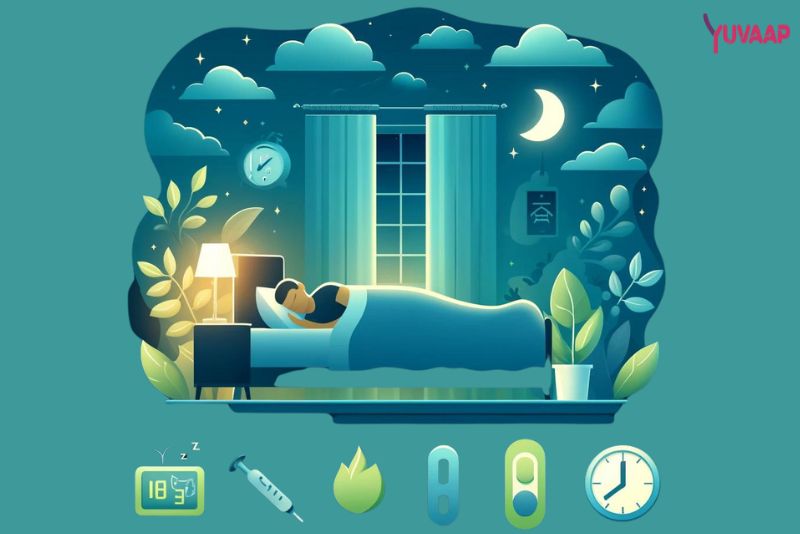Living with diabetes can feel like an uphill battle, especially when you’ve tried everything without seeing results. If you’re reading this, you’re probably frustrated and exhausted from the constant struggle to keep your blood sugar levels stable. You might be wondering if there are any natural methods that truly work for diabetes management. The good news is that there are effective, natural strategies that can help you take control of your health. This article will guide you through practical lifestyle changes, from diet to exercise and stress management, all backed by science and real success stories. Dive in and discover how you can start seeing real improvements today.
All You Need to Know About Diabetes
Diabetes is a condition where your body can’t manage blood sugar levels properly. There are three main types of diabetes: Type 1, Type 2, and gestational diabetes. To learn more about the symptoms and early signs, check out our detailed guide on the symptoms of diabetes.
- Type 1 Diabetes: This type usually starts in childhood. It happens when the body’s immune system attacks insulin-producing cells in the pancreas.
- Type 2 Diabetes: This type is more common and often develops in adults. It occurs when the body becomes resistant to insulin or doesn’t produce enough insulin.
- Gestational Diabetes: This type occurs during pregnancy and usually goes away after the baby is born. However, it increases the risk of developing Type 2 diabetes later.
Managing diabetes means keeping blood sugar levels as close to normal as possible. This is important because high blood sugar can lead to serious health problems, including heart disease, kidney damage, and vision loss. Learning how to control diabetes naturally can help you feel better and stay healthy.
Importance of Diet in Diabetes Management

Your diet plays a big role in diabetes management. Eating the right foods can help keep your blood sugar levels stable. According to research High-fiber foods like vegetables, fruits, whole grains, and legumes help control blood sugar levels and improve digestion For a comprehensive guide on the best foods to eat, visit our blog on food for diabetes patients.
Foods to Include
- High-Fiber Foods: Foods like vegetables, fruits, whole grains, and legumes help control blood sugar levels. They slow down the absorption of sugar and improve digestion.
- Examples: Whole wheat roti, brown rice, oats, and dal.
- Lean Proteins: Include foods like beans, lentils, tofu, and low-fat dairy products. They help keep you full without raising blood sugar levels.
- Examples: Chana (chickpeas), rajma (kidney beans), paneer (cottage cheese), and curd.
- Healthy Fats: Nuts, seeds, avocados, and olive oil are good choices. These fats can help reduce inflammation and improve heart health.
- Examples: Almonds, walnuts, flaxseeds, and ghee (A2 Cow).
Foods to Avoid
- Sugary Foods: Sweets, candies, and sugary drinks can cause spikes in blood sugar levels.
- Examples: Gulab jamun, jalebi, sugary sodas, and sweetened juices.
- Refined Carbs: White bread, pasta, and pastries can quickly raise blood sugar levels.
- Examples: White rice, maida (refined flour) products like naan and paratha.
- Trans Fats: These are found in fried foods and baked goods and can increase the risk of heart disease.
- Examples: Fried snacks like samosas and pakoras, and commercially baked goods.
Example Meal Plan
- Breakfast: Vegetable poha (flattened rice) with a handful of peanuts and a side of curd.
- Lunch: Mixed vegetable sabzi (cooked vegetables) with whole wheat roti and a bowl of dal.
- Dinner: Brown rice with palak paneer (spinach and cottage cheese) and a side salad.
- Snacks: Fresh fruit like an apple or a handful of almonds, and carrot sticks with hummus.
For a detailed diet plan, you can follow our diet chart for diabetics.
Physical Activity and Exercise

Exercise is crucial for diabetes management. It helps your body use insulin better and keeps your blood sugar levels stable. To explore specific exercises and routines, check out our Exercise for Diabetes Management playlist on YouTube.
Types of Exercises
- Aerobic Exercises: Activities like brisk walking, swimming, and cycling are excellent for your heart and can help lower blood sugar levels. These exercises increase your heart rate and improve your cardiovascular health.
- Strength Training: Using resistance bands or weights helps build muscle, which can improve blood sugar control. Muscle tissue uses more glucose than fat tissue, so increasing your muscle mass can help manage blood sugar levels.
- Flexibility Exercises: Practices like yoga and stretching can improve flexibility and reduce stress, which is important for overall health. Yoga, in particular, combines physical movement with mindfulness, making it a great choice for holistic wellness.
For yoga exercises specifically aimed at managing diabetes, watch our video on yoga asanas for diabetes management.
Tips for Incorporating Exercise
- Start Small: Begin with short sessions of 10-15 minutes and gradually increase the duration as you get more comfortable. A short walk after each meal can be very effective.
- Choose Enjoyable Activities: Find exercises that you enjoy so that it doesn’t feel like a chore. Whether it’s dancing, gardening, or playing a sport, staying active can be fun.
- Set Realistic Goals: Aim for at least 30 minutes of exercise most days of the week. It’s okay to break this into shorter sessions throughout the day.
- Stay Consistent: Consistency is key. Make exercise a regular part of your daily routine. Try to exercise at the same time each day to build a habit.
Stress Management

Stress can make it harder to control diabetes. When you’re stressed, your body releases hormones like cortisol that can raise blood sugar levels. Managing stress is essential for keeping your diabetes under control.
Techniques for Stress Reduction
- Meditation and Mindfulness: These practices can help calm your mind and reduce stress. Spend a few minutes each day sitting quietly and focusing on your breath or a peaceful image. Guided meditations and mindfulness apps can be helpful if you’re just starting out.
- Deep Breathing Exercises: Take deep, slow breaths to help relax your body and mind. Practice inhaling deeply through your nose, holding the breath for a few seconds, and then exhaling slowly through your mouth.
- Yoga and Tai Chi: These gentle exercises combine movement and meditation, helping to reduce stress and improve flexibility. Yoga, in particular, has been shown to lower blood pressure and improve glucose levels in people with diabetes.
- Hobbies and Leisure Activities: Engage in activities that you enjoy and that help you relax, whether it’s reading, painting, listening to music, or spending time in nature.
To enhance your stress management routine, try music therapy for 7 chakras activation, which can help in balancing your energy and reducing stress.
Creating a Relaxing Environment
- Quiet Space: Create a quiet, peaceful space at home where you can retreat to relax and unwind.
- Soothing Scents: Use calming scents like lavender or chamomile to create a relaxing atmosphere. Aromatherapy can be a simple and effective way to reduce stress.
- Limit Stimulants: Reduce your intake of caffeine and sugar, which can increase anxiety and make it harder to relax.
Quality Sleep and Diabetes

Getting enough sleep is essential for how to keep blood sugar stable. Studies suggest that less than seven hours of sleep increases the risk of diabetes. Poor sleep can affect how your body uses insulin, leading to higher blood sugar levels. Prioritizing good sleep hygiene can make a big difference in your diabetes management.
Tips for Improving Sleep Quality
- Sleep Hygiene Practices: Keep your bedroom dark, quiet, and cool. Use blackout curtains, earplugs, or a white noise machine to eliminate disruptions. A comfortable mattress and pillows can also help improve sleep quality.
- Regular Sleep Schedule: Go to bed and wake up at the same time every day, even on weekends. This helps regulate your body’s internal clock and can improve the quality of your sleep.
- Relaxing Bedtime Routine: Establish a calming routine before bed. This might include reading a book, taking a warm bath, or practicing gentle yoga or meditation. Avoid screens (TV, phones, computers) for at least an hour before bedtime as the blue light can interfere with your ability to fall asleep.
- Avoiding Stimulants: Limit caffeine and sugar in the hours leading up to bedtime. Instead, opt for a warm, caffeine-free drink like herbal tea or warm milk.
- Physical Activity: Regular physical activity can help you fall asleep faster and enjoy deeper sleep. Just make sure to finish exercising at least a few hours before bedtime.
Hydration and Its Role

Staying hydrated is crucial for everyone, especially for those managing diabetes. Proper hydration helps your body maintain stable blood sugar levels and supports overall health. Dehydration can lead to higher blood sugar levels because less water in your body means your blood sugar becomes more concentrated.
Best Beverages for Diabetics
- Water: It’s the best choice for staying hydrated without adding sugar or calories. Drinking plenty of water helps your kidneys flush out excess blood sugar through urine.
- Herbal Teas: These are great alternatives to sugary drinks and can offer additional health benefits. Herbal teas like chamomile or peppermint can aid digestion and promote relaxation.
- Avoid Sugary Drinks: Beverages like soda and sweetened coffee can cause blood sugar spikes. Instead, opt for unsweetened tea, black coffee, or sparkling water with a splash of lemon.
Tips for Staying Hydrated
- Carry a Water Bottle: Keep a water bottle with you throughout the day to encourage regular sipping.
- Eat Hydrating Foods: Foods like cucumbers, tomatoes, and watermelon have high water content and can contribute to your hydration needs.
- Set Reminders: Use a phone app or set reminders to drink water at regular intervals.
- Start Your Day with Water: Begin each day by drinking a glass of water to kickstart your hydration.
Alcohol Intake and Smoking

Managing diabetes effectively also involves being mindful of your alcohol intake and avoiding smoking. Both can have significant impacts on your blood sugar levels and overall health.
Impact of Alcohol on Blood Sugar Levels
- Moderate Alcohol Consumption: It’s important to drink alcohol in moderation. Women should have no more than one drink per day, and men no more than two. Drinking alcohol with food can help prevent blood sugar spikes.
- Best Alcoholic Beverages: Opt for dry wines or spirits mixed with water or soda. Avoid sugary mixers and cocktails which can cause blood sugar levels to rise quickly.
- Monitor Blood Sugar Levels: Alcohol can cause both high and low blood sugar levels. Be sure to monitor your levels closely when consuming alcohol.
Dangers of Smoking for Diabetics
- Impact on Blood Sugar and Overall Health: Smoking can make it harder to control blood sugar levels and increases the risk of complications from diabetes, such as heart disease and poor blood circulation.
- Tips for Quitting Smoking: Seek support from friends, family, or support groups. Consider nicotine replacement therapies or medications to help you quit. Programs like yoga and meditation can also aid in reducing the stress and anxiety associated with quitting smoking.
Natural Supplements and Herbs

Some natural supplements and herbs can help manage blood sugar levels, but it’s important to consult with a healthcare provider before starting any new supplement. These supplements should complement, not replace, traditional diabetes treatments.
Beneficial Supplements
- Cinnamon: Some studies suggest that cinnamon can help lower blood sugar levels by improving insulin sensitivity source. Adding a small amount of cinnamon to your diet can be a helpful supplement.
- Berberine: This compound is found in several plants and has been shown to improve insulin sensitivity and reduce glucose production in the liver. It’s known for its potential to help manage blood sugar levels effectively.
- Fenugreek: These seeds may help improve blood sugar control by slowing down the digestion and absorption of carbohydrates. Fenugreek can be taken as a supplement or added to food.
Safety Considerations
Always talk to your doctor before taking any new supplements, especially if you’re already taking medication for diabetes. It’s important to ensure that supplements do not interact with your medications or cause unwanted side effects.
Incorporating Supplements into Your Routine
- Start Small: Begin with small doses to see how your body reacts.
- Monitor Changes: Keep track of any changes in your blood sugar levels and overall health.
- Consult Regularly: Regularly consult with your healthcare provider to discuss any supplements you’re taking and how they are affecting your diabetes management.
Monitoring and Regular Check-ups

Regular monitoring of your blood sugar levels is key to managing diabetes effectively. This helps you understand how your lifestyle choices impact your blood sugar and allows you to make necessary adjustments.
How to Monitor Blood Sugar Levels at Home
- Use a Blood Glucose Meter: This device helps you check your blood sugar levels regularly. Your healthcare provider can show you how to use it correctly. Checking your blood sugar levels can help you understand your body’s response to different foods, activities, and medications.
- Continuous Glucose Monitors (CGMs): These devices track your blood sugar levels throughout the day and night, providing more comprehensive data than traditional meters.
- Keep a Log: Record your blood sugar levels, meals, exercise, and any symptoms you experience. This information can help you and your healthcare provider make necessary adjustments to your management plan. Use apps or a simple notebook for tracking.
When to Seek Medical Advice
- High Blood Sugar Levels: If your blood sugar levels are consistently too high, it may be a sign that your current management plan needs adjustment.
- Low Blood Sugar Levels: If you experience symptoms of low blood sugar, such as dizziness, shaking, or sweating, it’s important to address this promptly.
- Other Symptoms: If you experience symptoms like excessive thirst, frequent urination, or unexplained weight loss, consult your healthcare provider.
Regular check-ups with your healthcare provider are crucial. They can help you monitor your overall health, adjust your management plan as needed, and catch any complications early.
Personalizing Your Diabetes Management Plan
Everyone’s experience with diabetes is different. It’s important to find a management plan that works for you. Personalizing your plan can help you manage your diabetes more effectively and improve your overall well-being.
Working with Healthcare Professionals
- Consult Your Doctor or a Diabetes Educator: They can help you develop a personalized plan based on your specific needs and lifestyle. This plan might include dietary recommendations, exercise routines, medication management, and more.
- Regularly Review Your Plan: Make adjustments based on your progress and any changes in your condition. Regular check-ups are crucial to ensure your management plan remains effective.
Adjusting the Plan
- Be Flexible: Your needs may change over time, so it’s important to be open to making adjustments. Whether it’s a new exercise routine or a different meal plan, find what works best for you.
- Focus on Long-term Sustainability: Choose strategies that you can maintain over the long term rather than quick fixes. Gradual, consistent improvements are more effective than drastic changes.
- Listen to Your Body: Pay attention to how your body responds to different foods, activities, and stress levels. Use this information to tailor your plan.
Managing diabetes naturally requires a holistic approach that includes diet, exercise, stress management, and regular monitoring. By making these lifestyle changes, you can take control of your health and improve your overall well-being. Remember, it’s a journey, and every small step you take can lead to better health and a brighter future. Keep going, and don’t give up hope.
You have the power to manage your diabetes and live a healthy, fulfilling life. Embrace the journey with compassion and patience, and know that every effort you make brings you closer to your health goals. Stay motivated, seek support when needed, and trust in your ability to create a positive and lasting change.
Frequently Asked Questions

Priyanka Khurana Goyal is a prominent Indian figure renowned for her diverse accomplishments and contributions across various fields.. Read more



